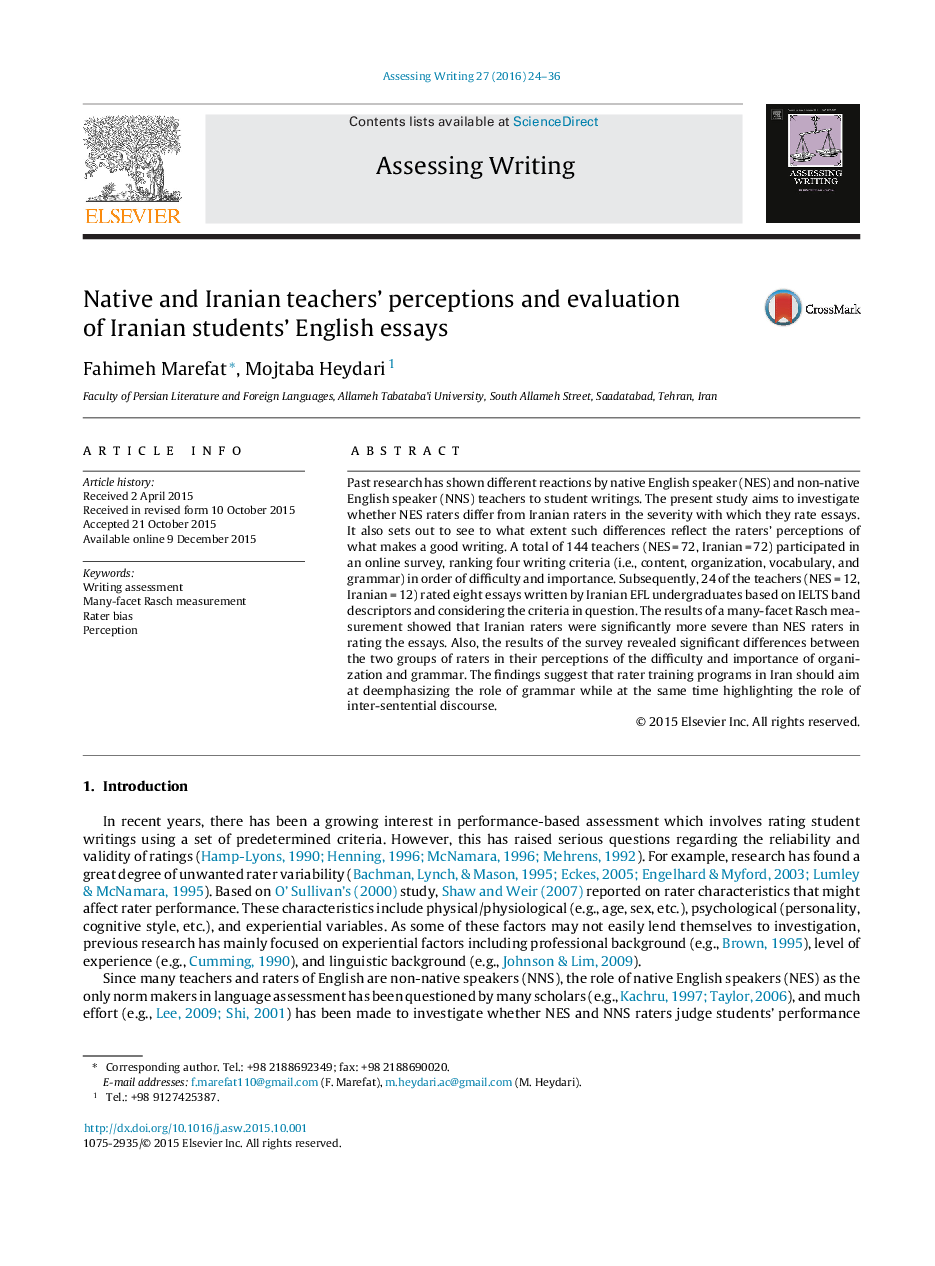| Article ID | Journal | Published Year | Pages | File Type |
|---|---|---|---|---|
| 344200 | Assessing Writing | 2016 | 13 Pages |
•Examine NES and Iranian raters’ severity and bias in rating students’ writings.•Probe rater perception of writing norms: content, organization, vocabulary, grammar.•Iranian raters significantly more severe than NES raters.•Different perceptions of difficulty and importance of organization and grammar.•Relationship between perceptions and severity provided additional insights.
Past research has shown different reactions by native English speaker (NES) and non-native English speaker (NNS) teachers to student writings. The present study aims to investigate whether NES raters differ from Iranian raters in the severity with which they rate essays. It also sets out to see to what extent such differences reflect the raters’ perceptions of what makes a good writing. A total of 144 teachers (NES = 72, Iranian = 72) participated in an online survey, ranking four writing criteria (i.e., content, organization, vocabulary, and grammar) in order of difficulty and importance. Subsequently, 24 of the teachers (NES = 12, Iranian = 12) rated eight essays written by Iranian EFL undergraduates based on IELTS band descriptors and considering the criteria in question. The results of a many-facet Rasch measurement showed that Iranian raters were significantly more severe than NES raters in rating the essays. Also, the results of the survey revealed significant differences between the two groups of raters in their perceptions of the difficulty and importance of organization and grammar. The findings suggest that rater training programs in Iran should aim at deemphasizing the role of grammar while at the same time highlighting the role of inter-sentential discourse.
